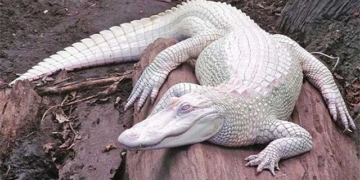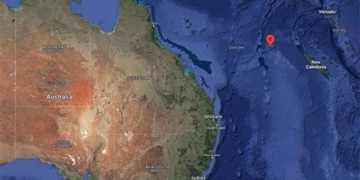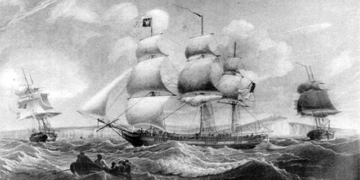With a width of 34 meters and a length of 32 meters, the newly discovered coral reef in the Pacific is three times larger than the previous record-holder, the Big Momma reef in Samoa (USA).
On November 14, scientists announced the discovery of the largest coral reef in the world located at the southeastern tip of the Solomon Islands in an area known as the Three Sisters.
A team of scientists from National Geographic uncovered this vibrant and colorful coral oasis during an expedition in the region. The reef is so large that researchers initially mistook it for a shipwreck.
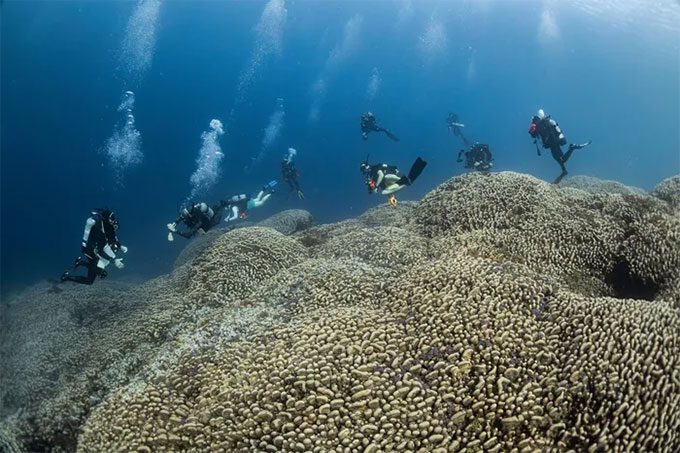
The image shows the coral species Pavona clavus, resembling a brown clump of earth. (Photo: Manu San Félix/NG Pristine Seas).
Marine ecologist Enric Sala stated that humans often think they have explored everything on Earth, but this coral reef proves otherwise. With nearly 1 billion small polyps forming it, this colossal reef is truly a wonder of nature.
Formed from a complex network of small coral polyps, this structure has been continuously developing for approximately 300 years.
Unlike typical coral reefs made up of many distinct coral populations, the newly discovered reef is a singular entity.
With a width of 34 meters and a length of 32 meters, this reef is three times larger than the previous record-holder, the Big Momma reef in Samoa (USA). Scientists believe this reef is so large that it could be visible from space.
Scientist Molly Timmers metaphorically described that while Big Momma resembles a giant ice cream cone, the newly discovered reef looks like an ice cream that is starting to melt, covering a vast area on the ocean floor.
Warmer and more acidic oceans have depleted coral life in many tropical regions, including the famous Great Barrier Reef of Australia.
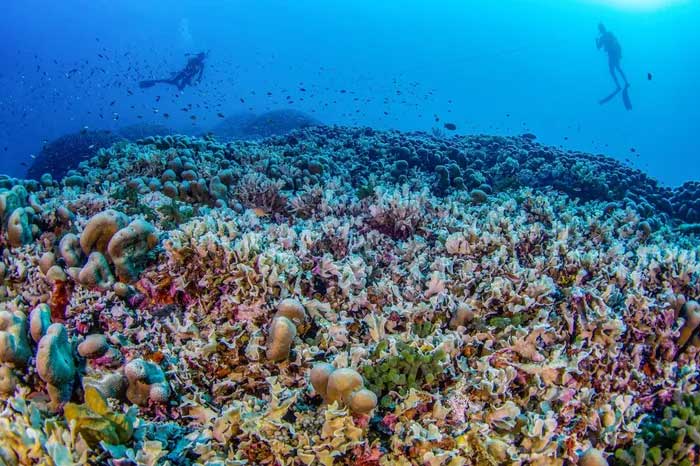
The discovery of the giant coral evokes a sense of amazement about the ocean. (Photo: Manu San Félix/NG Pristine Seas).
However, the research team stated that this latest discovery has brought a glimmer of hope. Coral scientist Eric Brown remarked that while other reefs are severely affected by climate change, discovering such a colossal and healthy reef is incredibly positive news.
This new reef is likened to a lighthouse, offering hope for the future of marine ecosystems.
For his part, Collin Beck, a senior official from the Solomon Islands, stated that this discovery is a significant breakthrough, opening new doors for humanity to explore the deep mysteries of the ocean.
He believes that “more scientific research is needed to better understand the rich biodiversity of our planet”.















































